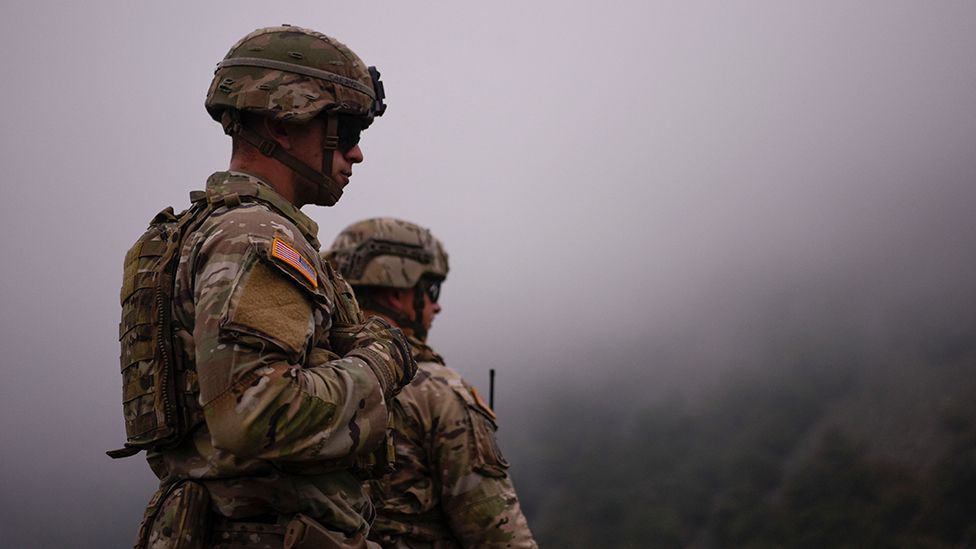This video can not be played
To play this video you need to enable JavaScript in your browser.
Russia’s President Vladimir Putin has recognised breakaway rebel regions in Ukraine’s east as independent states.
The self-declared people’s republics of Donetsk and Luhansk are home to Russia-backed rebels who have been fighting Ukrainian forces since 2014.
Russia’s move is likely to end peace talks in the region, which has been under a tenuous ceasefire for years.
Western powers also fear it could pave the way for Russian military forces to enter Ukraine’s eastern regions.
Shortly after the announcement, Mr Putin signed an order for troops to perform so-called “peacekeeping functions” in both regions. The extent of the mission remains unclear, but if troops cross the border it would be the first time Russian soldiers have officially entered rebel-held territory.
UK Prime Minister Boris Johnson said the move amounted to “a flagrant violation of the sovereignty and integrity of Ukraine” and breaks international law. He called it “a very ill omen and a very dark sign”. Foreign Secretary Liz Truss said the UK would announce new sanctions on Russia on Tuesday.
The EU pledged to “react with unity, firmness and with determination in solidarity with Ukraine”.
Australia’s Prime Minister Scott Morrison rejected the suggestion that Russian troops would have a peacekeeping brief, telling reporters: “It’s unacceptable, it’s unprovoked, it’s unwarranted … some suggestion that they are peacekeeping is nonsense.”
The move by Vladimir Putin deepens the ongoing crisis in Ukraine, which is surrounded by more than 150,000 Russian troops on its borders. Russia has denied planning to invade, but the US believes Mr Putin is preparing an imminent attack.
In recent years, Russian passports have been widely distributed in both Donetsk and Luhansk, and Western allies fear Russia could now move military units into the rebel-held areas under the guise of protecting its citizens.
Nato Secretary General Jens Stoltenberg warned: “Moscow continues to fuel the conflict in eastern Ukraine by providing financial and military support to the separatists. It is also trying to stage a pretext to invade Ukraine once again.”
Speaking in a televised national address immediately after the announcement, Mr Putin said modern Ukraine had been “created” by Soviet Russia, referring to the country as “ancient Russian lands”.
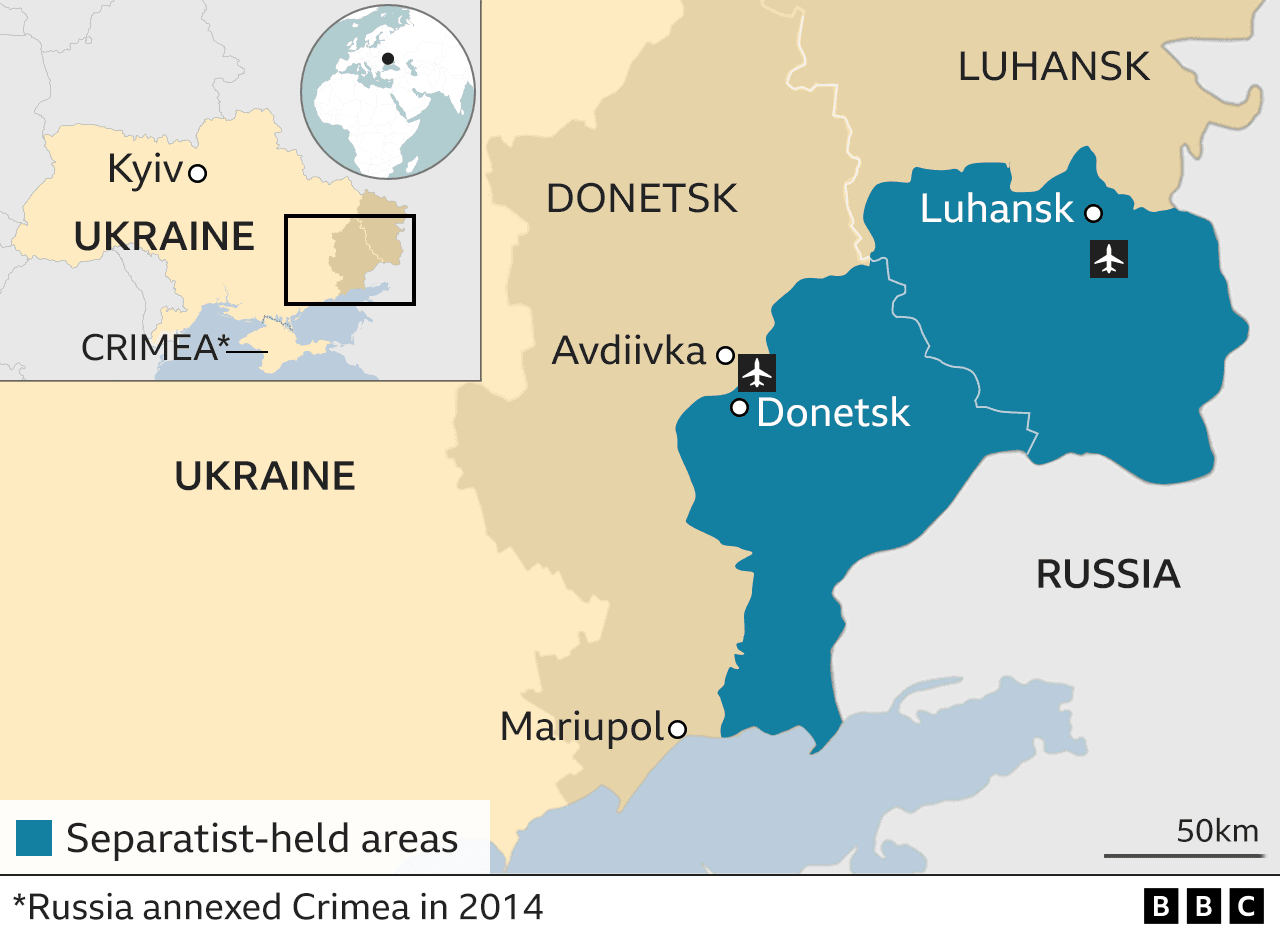
In an hour-long speech, he referred to Russia having been “robbed” during the collapse of the Soviet Union in 1991, accused Ukraine of being a “US colony” run by a puppet government, and alleged that people were suffering under its current leadership. He painted the 2014 protests which toppled Ukraine’s pro-Russia leader as a coup.
In response, Ukrainian President Volodymyr Zelensky convened his national security council, and spoke directly with the leaders of France, Spain, and the United States.


This speech was Putin the angry, impatient and directly threatening. It felt like Russia’s president was getting 20-odd years of hurt off his chest and hitting back.
“You didn’t want us to be friends,” was how he put it to the West, “but you didn’t have to make an enemy of us.”
There was a lot we’ve heard before, repackaged for this moment when he knows he has maximum attention.
He’s clearly ceding no ground on his key security demands: Nato expansion must be rolled back, and Ukrainian membership is a red line. He complained that Russia’s concerns had been ignored as irrelevant for years and accused the West of trying to “contain” Russia as a resurgent global force.
Mr Putin’s focus on Ukraine felt obsessive, like a man who thinks about little else. At times it sounded like a bid to run for president there, it was so detailed.
And, of course, there was his re-writing of Ukrainian history, to claim it has never really been a state. In today’s context, that had deeply ominous overtones.
Recognising the two breakaway regions of Ukraine could mean Russian troops go in openly, very soon – invited as “peacemakers”. Or there could be a pause, as Putin waits to see his opponent’s next move.
In all this, Ukraine is the battleground. But it’s also a game of brinkmanship between Russia and the West, rapidly building to a showdown.

Both Germany’s Chancellor Scholz and French President Emmanuel Macron spoke with the Russian leader ahead of his announcement. Western powers have rallied behind Ukraine, promising harsh sanctions against Russia if it invades – though it is not yet clear how far the response to this move will go.
The US made a first step shortly after Mr Putin’s speech, saying President Biden would shortly issue an executive order banning US people and businesses from investment or trade with the self-styled people’s republics – with more to follow.
“To be clear: these measures are separate from and would be in addition to the swift and severe economic measures we have been preparing in coordination with Allies and partners should Russia further invade Ukraine,” White House Press Secretary Jen Psaki said.
EU foreign policy head Josep Borrell earlier warned: “If there is annexation, there will be sanctions, and if there is recognition, I will put the sanctions on the table and the ministers will decide.”
Germany, meanwhile, called on Russia to reverse what it called “a blatant breach of international law”. Foreign Minister Annalena Baerbock said it was “another violation of Ukraine’s territorial integrity and sovereignty” and said Germany would respond alongside its partners.
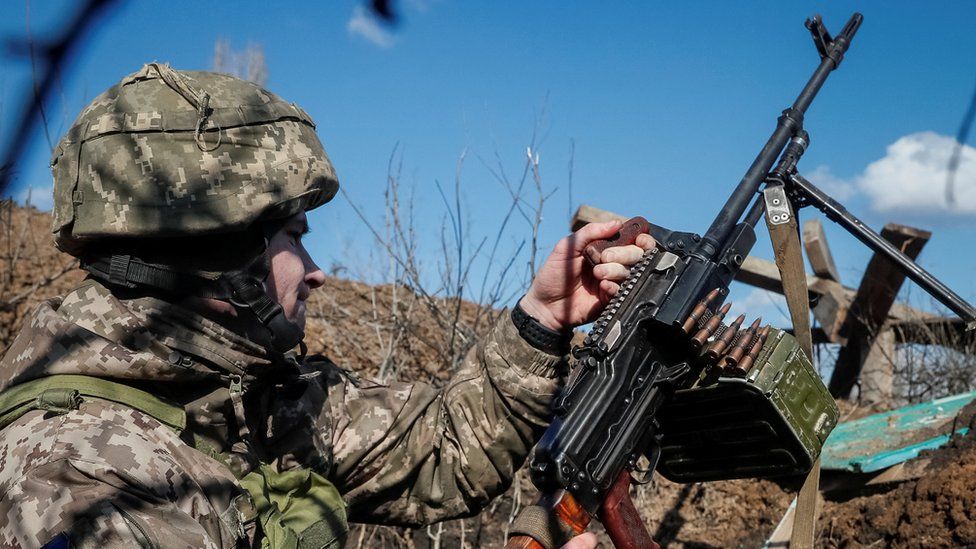
Groundwork for the controversial decision was laid earlier in the day, when Mr Putin convened Russia’s security council for a televised discussion on the issue.
Mr Putin’s top officials were called to a podium to deliver their views on recognising the two regions, each speaking in favour of the move, which had already been endorsed by the Russian parliament.
Monday’s televised meeting was not entirely smooth, however.
Two officials, during their exchanges with Mr Putin, appeared to reference the possibility to “incorporate” the regions into Russia. On both occasions, Mr Putin corrected them.
“We are not talking about that, we are not discussing that,” he said, shaking his head in response to one official’s use of the phrase. “We are talking about whether to recognise their independence or not.”
-
- 12 hours ago
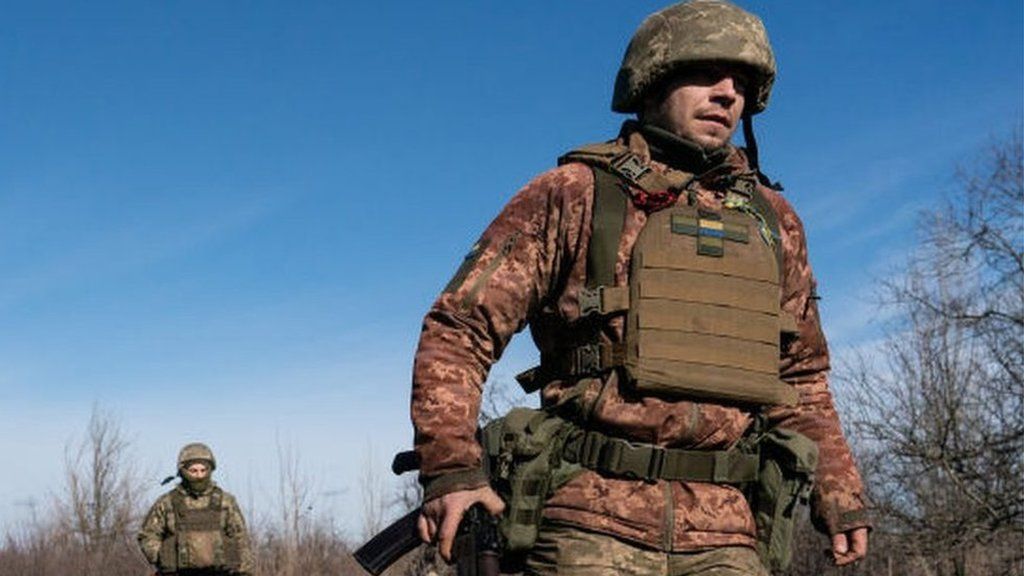
-
- 11 hours ago
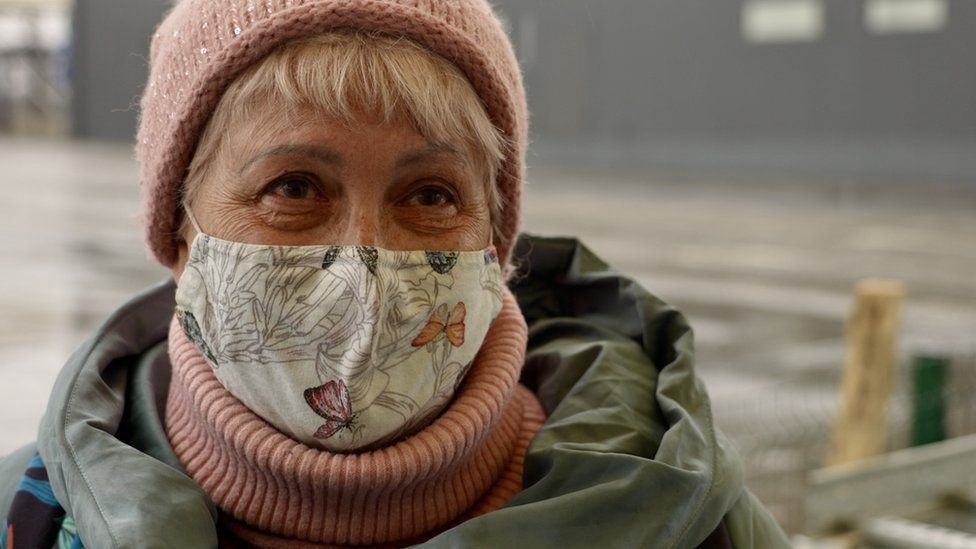
-
- 11 hours ago
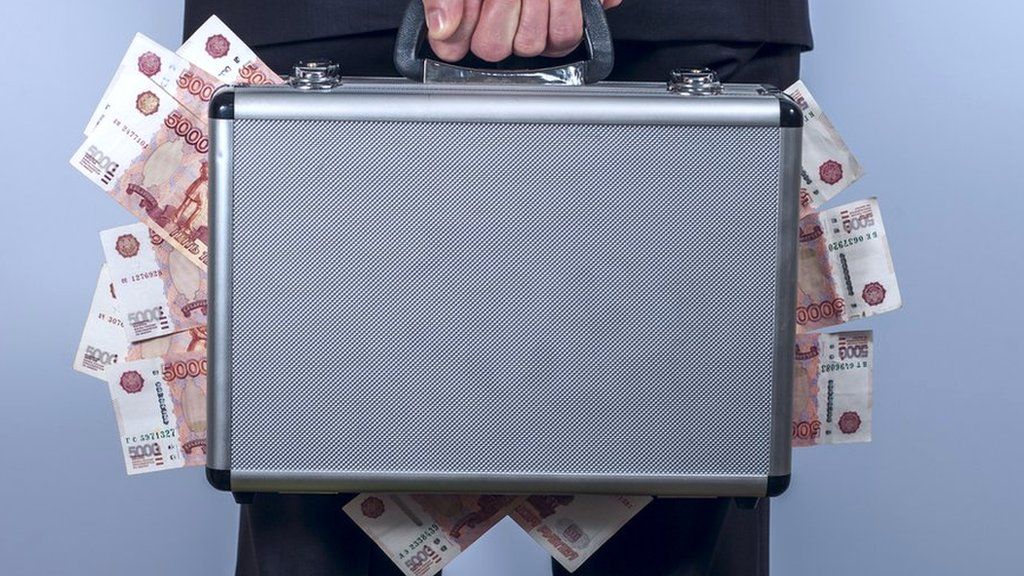
-
- 12 hours ago
